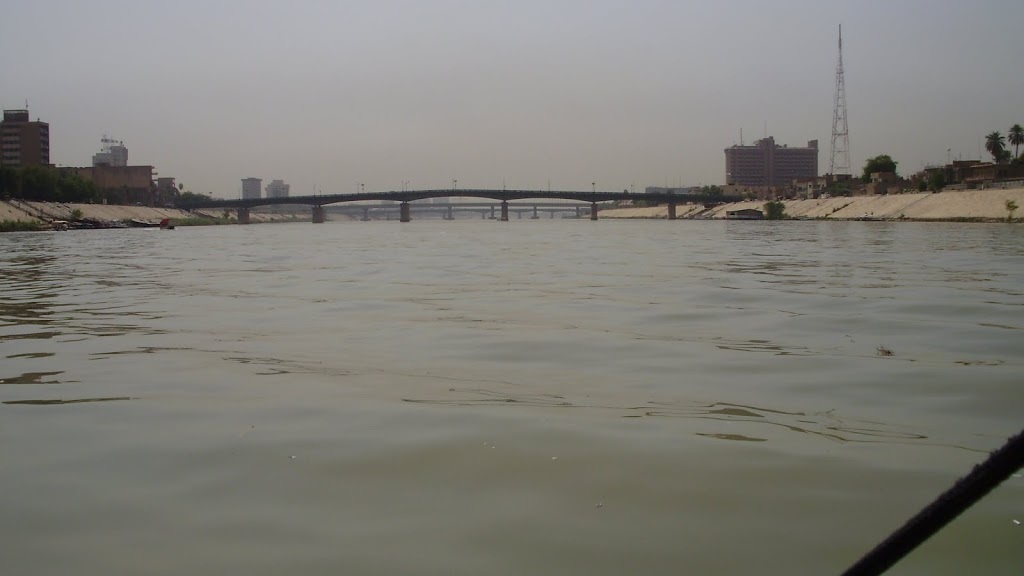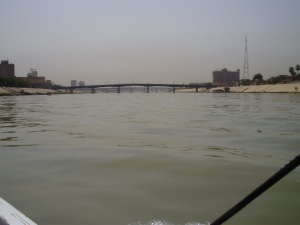Leaning on Iran
With Iraqi Prime Minister Nuri Al-Maliki’s bid for a third term in office in trouble, will Iran now come to his rescue, asks Salah Nasrawi
Embattled Iraqi Prime Minister Nuri Al-Maliki was a guest in the Iranian capital Tehran last week, even receiving unusually high praise from Iran’s spiritual leader Ayatollah Ali Khamenei.
Al-Maliki flew to Tehran to discuss terrorism and the conflict in Syria, among other issues. But the trip may have had another agenda, being to provide an opportunity for Al-Maliki to speak directly with Iranian leaders about Iraq’s crucial legislative elections next year.
The polls are important because of their far-reaching impact on Iraq’s future, and they are widely expected to be a test of how far the violence-torn country can remain united.
Al-Maliki, who is seeking a third term in office, is facing growing opposition at home, including from two of his powerful Shia allies who say that they will contest the elections scheduled for 30 April.
Iran helped him to win his second term in office in 2010, and it would not be a surprise if Al-Maliki has now travelled to Tehran because he expects Iran to use its influence to stifle Shia opposition to his candidacy this time round.
Iran increased its influence in Iraq after the ouster of the Sunni-dominated regime of former president Saddam Hussein in the US-led invasion in 2003 and the ascent of the country’s Shias to power. Since December 2011, Tehran has been trying to fill the vacuum left by the departing Americans.
While top Iranian Shia clerics, some of them residing in Iraq, wield enormous influence through their religious pronouncements, including on whom to vote for in elections, Tehran maintains close relations with Iraqi Shia political leaders, many of them given refuge in Iran during Saddam’s rule and funded by Tehran.
In 2010, American and Iranian interests converged to lend support to Al-Maliki against Iyad Allawi, leader of the Sunni-dominated Al-Iraqiya List, which won most of the seats in the elections.
At the time of forming the government, US troops were preparing to leave Iraq, and Washington was keen to prevent a governmental crisis in order to keep its withdrawal plans on track.
Tehran, meanwhile, was adamant about keeping friendly Shia groups in power.
This time round, Iraq’s political landscape has changed, and Al-Maliki’s task in winning a third term does not look so simple. With no American troops on the ground in the country, Washington also has little clout to be a power-broker.
Iran, however, is a key player in Iraq, and its aim is to maintain the Shia groups’ hold on power. But it is unclear how Iran will use its leverage with the divided Iraqi Shia leaders, many of them having made it clear that they will not support Al-Maliki for another four-year term.
Al-Maliki started his ascent to power by chance amid wrangling over who should be Iraq’s first full-term elected prime minister after the 2006 elections in which a Shia alliance won most of the seats.
Its candidate for the premiership, Ibrahim Al-Jaafari, was vetoed by the country’s Kurds and Sunnis. Al-Maliki, a senior member of Al-Jaafari’s Daawa Party, was a compromise choice, allegedly after a deal had been reached by Washington and Tehran.
After a brief honeymoon period, during which he tried to prove his security credentials by cracking down on the country’s militias, Al-Maliki began expanding his control over the government and security forces.
Opposition to Al-Maliki grew fast, with most Iraqis being disillusioned by his government’s failure to end the violence, combat massive corruption, and bring back basic services such as electricity, water and healthcare.
One part of Al-Maliki’s problem is his perceived lack of leadership. Last month, many Iraqi cities turned into swamps and thousands of people became homeless after torrential rain because the government had not taken precautionary measures to protect the population.
Instead of moving to solve the problem, Al-Maliki accused his opponents in the country’s local authorities of blocking waste-water pipes.
Among other accusations made against Al-Maliki is that there is rampant corruption in his government, particularly in the form of nepotism. In November, he drew criticism after he admitted that his son, who does not have a security portfolio, was fulfilling police duties under his instructions.
Another part of Al-Maliki’s problems is his perception of Iraq’s priorities and its need for healing policies. Al-Maliki’s policies have deepened societal mistrust and sectarian divisions in the country, and Iraqi Sunni Arabs have been protesting against what they say is the Al-Maliki government’s marginalisation and discrimination against them.
The Kurds also accuse Al-Maliki of monopolising power and acting as a dictator, complaining that their representatives have been barred from government decision-making.
Both communities fear that Al-Maliki, who controls the army, security forces and intelligence services, is trying to subdue them through his autocratic tendencies.
Dissatisfaction with his heavy-handed style of governance has also mounted among his Shia allies. Grand Ayatollah Ali Sistani has reportedly declined Al-Maliki’s requests for an audience, and other Shia clerics have been lashing out at his government during Friday prayers.
As the frustration and anger against Al-Maliki build, he is becoming increasingly isolated.
The Al-Sadrist Movement, which holds 40 seats in the country’s parliament, and the other influential Iraqi Shia group, the Supreme Iraqi Islamic Council, which has a strong presence in the legislature, have said that they will not endorse Al-Maliki for a third term.
In recent weeks, several of Al-Maliki’s long-time allies have abandoned him and announced they will fight the next elections as independents or join other political lists.
Some of them have fired serious accusations at Al-Maliki, such as fuelling sectarianism through the random arrests of Sunnis and the closures of their neighbourhoods, which they have said are behind the recent escalation of violence.
Meanwhile, those who challenge Al-Maliki have been paying the price for doing so.
The authorities last week issued arrest warrants against two senior Al-Sadrist Movement parliamentarians on charges of corruption. On Monday, a member of Al-Maliki’s bloc unveiled a list of 20 opposition lawmakers under investigation on charges of racketeering and embezzlement.
Al-Maliki has adopted the tactic of blackmailing his political rivals by threatening to reveal damaging information about them if they dare to defy him.
Saleh Al-Hasnawi, one of the Al-Sadrist lawmakers, said the crackdown was politically motivated and accused Al-Maliki of deliberately trying to “destroy opponents and harm their reputations” ahead of next year’s elections.
However, there has been no sign that Al-Maliki will capitulate, although the Iraqi media reported on Monday that his State of Law Bloc had been registered by the country’s Independent Elections Commission with Haidar Al-Ibadi, a senior Daawa Party figure, as its head, instead of Al-Maliki.
Al-Maliki will head another list, it was reported, a move which could be aimed at rearranging the elections chess board.
After he returned from Iran this week, Al-Maliki resumed his vigorous election campaign by making promises to combat the militias and build low-price houses for poorer Iraqi families.
One of his campaign goals is to blame his political opponents for being behind his government’s shortcomings over the last eight years.
Given Iraq’s political turmoil and sharp communal divisions, it is hard to gauge Al-Maliki’s electoral popularity. However, he has not only polarised Iraq’s politics at a time when communal reconciliation has been badly needed to ease political sectarianism, but he has also divided Shia politics ahead of the crucial elections.
As a result of the Shia split, Iran is expected to increase its influence in Iraq’s internal politics.
Only days before Al-Maliki flew to Tehran, Muqtada Al-Sadr, leader of the Al-Sadrist Movement and an arch-rival of Al-Maliki, said he had received assurances from Iran that it would not support Al-Maliki’s bid for a third term.
This may have prompted Al-Maliki’s visit to Tehran to seek assurances of Iranian backing.
Despite Iran’s niceties to Al-Maliki, whom it had helped install in power, and Khamenei’s hailing the performance of the Al-Maliki government, the Iranian supreme leader nevertheless emphasised that more “needs to be done” to advance bilateral relations.
“There is great potential for further cooperation in various areas,” Khamenei was quoted by the Iranian media as saying.
Reading the minds of Iranian politicians, a process needed since they are not always explicit in stating their agendas, Khamenei’s remarks could be seen as a wait-and-see response in order to avoid putting all Iran’s eggs in one Iraqi Shia basket.



